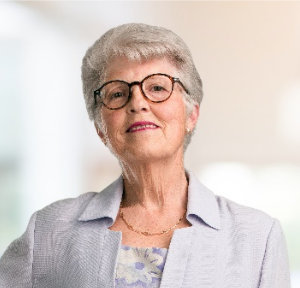After The Hearse, Don’t Be A Purse Or A Nurse! By Kathleen Rehl

After The Hearse, Don’t Be A Purse Or A Nurse! By Kathleen Rehl
July 16, 2019
When I was widowed at age 60, another woman gave me great advice.
She told me that after her husband died, she was careful not to get serious about anybody who “wanted me to be a purse for them or their nurse!”
She was right! When I started dating after becoming a widow, several suitors assumed I had money. Their marriage proposals came quickly. Other guys wanted me to be a personal caregiver. I avoided those fellows, for sure. Talking with hundreds of other widows, I’ve heard similar stories.
Advice from other widows
In our study of nearly 4,000 widowed persons, 54% said they wanted to date or are already dating, have entered a long-term relationship, or are remarried. Much different than when my great grandmother, grandmother, and mother were widowed. They never considered a new relationship after their husbands passed.
More than 500 widows gave advice to other women. Over half counseled widows to go slowly, focusing on negative and positive outcomes of re-partnering. Another third suggested talking about money early on to not be blindsided later by financial issues.
Below are examples of specific advice from these widows:
“Don’t let no sad puppy man follow you home and expect that you’ll save him. He’ll take advantage of you if you let him live with you if he’s in bad shape financially.”
“He pursued me for three years before I finally said ‘yes.’ Then he cleaned me out financially in three months. I divorced him the next year.”
“I didn’t bring up the money stuff because I thought it would hurt our relationship before we married. Boy was I wrong.”
“I cried when my soon-to-be new husband said we needed a prenuptial agreement. But he was right. It’s about trust and honesty.”
“Be careful with your finances. Don’t allow anyone to take advantage of you because you are lonely or sad.”
“We haven’t married because the kids are so nervous about our money situation.”
“Best for me is keeping my finances separate even though we’re together. Think it’s important for all women to have money in their own name.”
“Always protect yourself and your family first, in case you need to be on your own again.”
“Check out the fellow’s medical problems. You may not want to take care of another person again.”
“Talk about all expectations and hide nothing. Don’t wait to be surprised later that your partner has huge credit card debt!”
“We’re permanently engaged and will never marry. Our money differences are too complex.”
These money talks can benefit your relationship
Here are questions widows asked their new partner or wished they had asked before remarrying or entering a long-term relationship:
How we will make decisions about money—including spending, saving, debt level, and budgeting?
Who pays for what? Will we have joint credit and checking accounts for shared expenses?
Where will we live? Together or separately?
If we move in together, whose place will we choose? Or should we start fresh with a new home?
What are the plans for retirement? (If already retired, ask about retirement lifestyle.)
Will we merge investments or hold them separately?
What if one of us has substantially more or less income than the other? Or has fewer financial assets?
What about our health issues and potential costs in the future? How will we handle that?
What financial responsibilities will we take on for adult children or aging parents?
How do you feel about a prenuptial or cohabitation agreement?
Indeed, before my new husband (a widower and retired engineer) and I remarried, we had many money conversations. I know these talks strengthened our relationship going forward.
Kathleen M. Rehl, Ph.D., CFP®, CeFT®, inspires widows and their advisors through her speaking, writing, and research. She authored the award-winning book, Moving Forward on Your Own: A Financial Guidebook for Widows. Her work has been featured in the New York Times, Wall Street Journal, Kiplinger’s, CNBC, USA Today, among other publications, and online.







